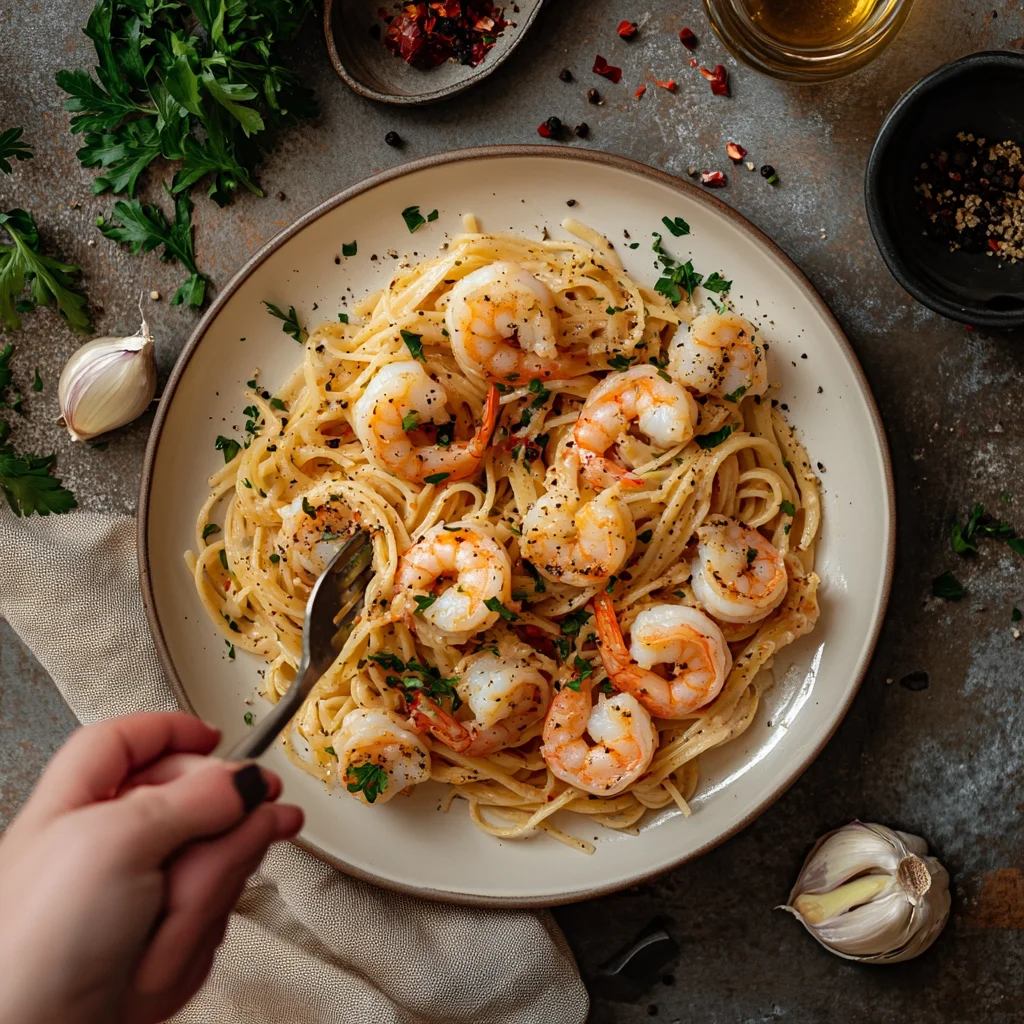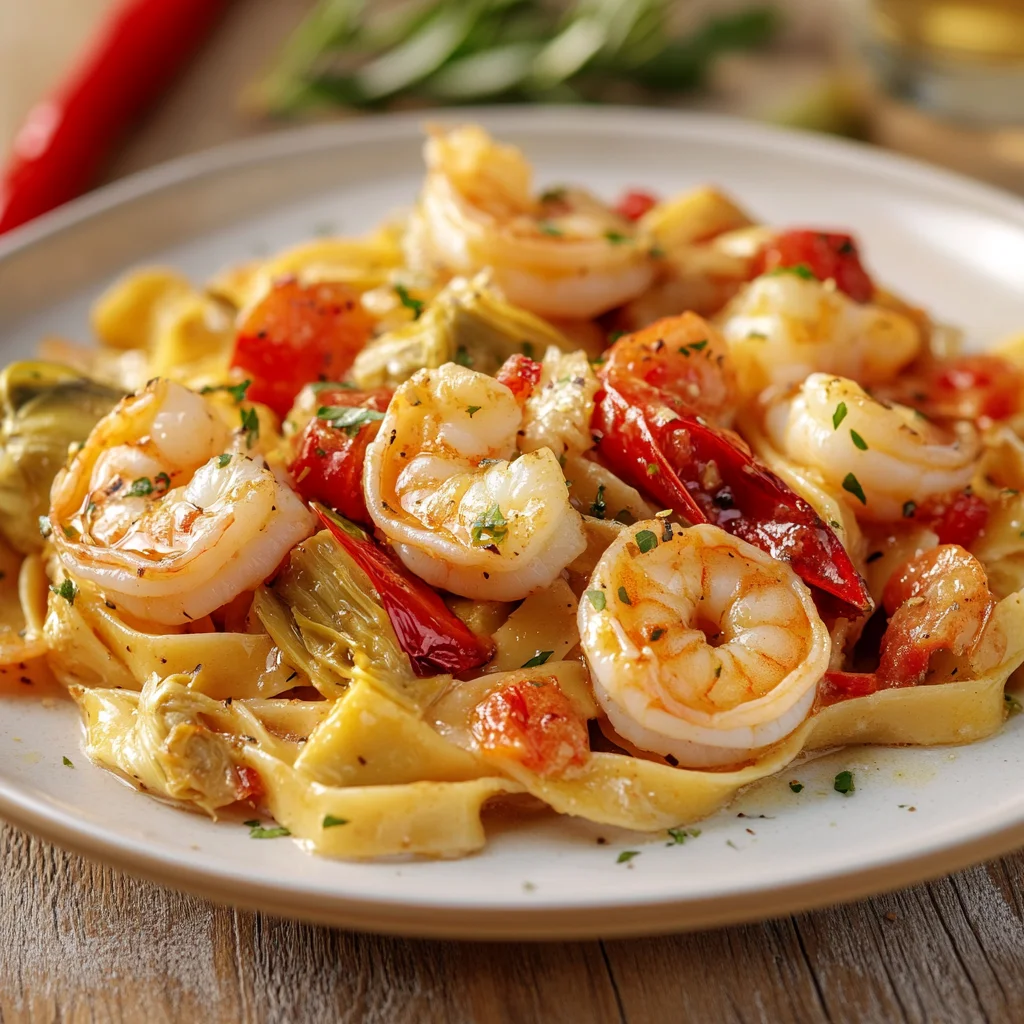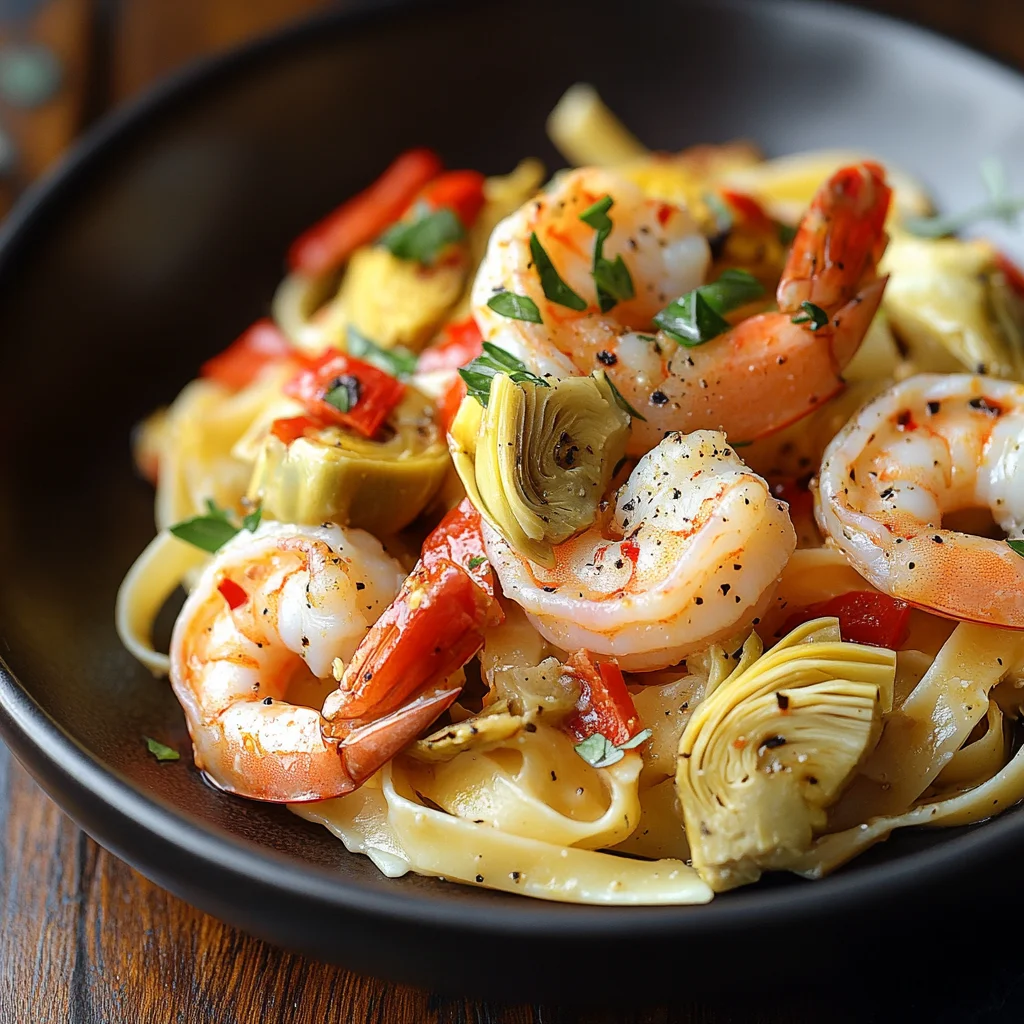 Pin it
Pin it
This shrimp and artichoke pasta combines the freshness of seafood with the bright flavors of pesto and spring vegetables, creating a restaurant-quality dish that comes together in just 30 minutes. The tender shrimp and artichoke hearts marry perfectly with al dente pasta, making this recipe ideal for weeknight dinners or casual entertaining.
I first discovered this recipe during a busy work week when I needed something quick but impressive. The combination was so delightful that it's now in my regular rotation, especially when friends drop by unexpectedly.
Ingredients
- Pasta: Linguine, fettuccine, or spaghetti creates the perfect base to hold the sauce
- Prepared pesto: Provides instant flavor without extra work
- Extra virgin olive oil: Adds richness and helps prevent sticking
- Fresh garlic: Gives aromatic depth that dried simply cannot match
- Raw shrimp: Opt for 21 to 30 count for the perfect bite size
- Frozen peas: Add sweet pops of color and flavor
- Frozen artichoke hearts: Bring subtle earthiness
- Green onions: Provide mild onion flavor without overpowering
- Fresh parsley: Brightens the entire dish with herbaceous notes
- Salt and pepper: Essential for bringing all flavors together
Step-by-Step Instructions
- Boil the Pasta:
- Fill a large pot with 4 quarts of water and 2 tablespoons of salt. Bring to a rolling boil over high heat. Add pasta and cook uncovered until al dente, about 10 minutes or according to package directions. The pasta should have just a slight firmness when bitten. Before draining, reserve 1 cup of the starchy cooking water as this will help create a silky sauce later.
- Prepare the Pesto Pasta:
- Drain the pasta thoroughly and immediately toss with the prepared pesto while still hot. The heat activates the oils in the pesto, releasing more flavor and helping it coat each strand evenly. Set aside but keep warm by covering with a kitchen towel.
- Sauté the Seafood:
- Heat olive oil in a large skillet over medium high heat until shimmering but not smoking. Add minced garlic and raw shrimp, stirring constantly to prevent garlic from burning. Cook for exactly 1 minute the shrimp will be pink on the outside but not yet fully cooked through. The residual cooking will complete without making them rubbery.
- Incorporate the Vegetables:
- Add the frozen peas and artichoke hearts directly to the shrimp mixture. Lower heat to medium to prevent overcooking the shrimp. Cover the pan to create steam that will quickly warm the vegetables without making them mushy. Cook for precisely 1 minute more.
- Finish the Dish:
- Reduce heat to low and add the sliced green onions and minced parsley. These delicate ingredients need minimal cooking to preserve their fresh flavor and bright color. Add the pesto coated pasta and approximately 1/3 cup of the reserved pasta water. Gently toss everything together using tongs to ensure even distribution. If the pasta seems dry, gradually add more reserved cooking water until you achieve a silky consistency. Season with salt and pepper to taste. Serve immediately on warmed plates for the best experience.
 Pin it
Pin it
My favorite element of this dish is the artichoke hearts. Their subtle, earthy flavor adds such complexity that guests always ask for my secret ingredient. My husband who normally avoids seafood will happily clean his plate whenever I make this pasta.
Make Ahead Options
While this dish is best enjoyed fresh, you can prep several components ahead of time to make dinner assembly lightning fast. Peel and devein the shrimp up to 24 hours before cooking, storing them covered in the refrigerator. Measure and prepare all other ingredients and keep them separated until ready to cook. The entire dish comes together in minutes once prep is complete, making it perfect for entertaining when you don't want to be stuck in the kitchen.
Customization Ideas
This recipe welcomes creative adaptations based on what you have available. Try swapping the shrimp for cubed chicken breast or even flaked salmon. The frozen peas can be replaced with asparagus tips, broccoli florets, or cherry tomatoes depending on the season. For a richer version, add a splash of heavy cream with the pasta water, or include a handful of toasted pine nuts for extra texture. Vegetarians can omit the shrimp entirely and double the vegetables for an equally satisfying meal.
Wine Pairing Suggestions
The bright, herbaceous notes of this pasta dish pair beautifully with crisp white wines. A Pinot Grigio or Sauvignon Blanc complements the seafood without overwhelming the delicate flavors. For something special, try a Vermentino from Italy its subtle citrus character enhances the zesty pesto. If you prefer red wine, choose something light like a chilled Beaujolais that won't compete with the dish's nuanced flavors.
 Pin it
Pin it
Nutritional Benefits
This balanced meal offers impressive nutrition in every bite. The shrimp provides lean protein essential for muscle maintenance, while the artichokes deliver fiber and antioxidants. Pasta offers necessary carbohydrates for energy, and the olive oil contains heart healthy monounsaturated fats. The pesto adds vitamin K from the basil, and the peas contribute additional protein and vitamin C. At just 363 calories per generous serving, this dish satisfies without overindulging, making it suitable for various dietary needs.
Frequently Asked Questions
- → Can I use a different type of pasta?
Yes, you can substitute linguine with fettuccine, spaghetti, or any pasta of your choice. Adjust cooking time accordingly for the pasta type.
- → Can I use pre-cooked shrimp?
Yes, pre-cooked shrimp can be used. Add them at the end just to heat through, ensuring they don’t overcook.
- → What can I use instead of basil pesto?
You can use spinach, arugula, or kale pesto as an alternative to basil pesto for a similar flavor profile.
- → Can I make this dish ahead of time?
It’s best served fresh, but you can prepare the individual components in advance and combine them just before serving.
- → Is this dish freezer-friendly?
While the cooked pasta and shrimp are better enjoyed fresh, you can freeze pesto and artichoke components separately.